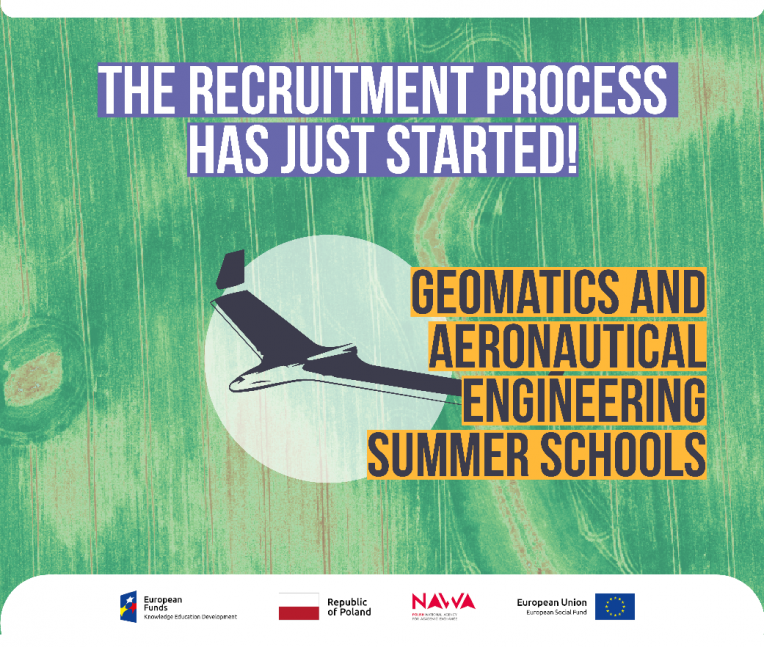Homepage »
Geomatics and Aeronautical Engineering Summer Schools
Dates: Edition 2 - June 19th – June 30th, 2023
The target group: 80 (40/40) foreign students (40 for each school), from all over the world. We look for students from 1st, 2nd cycle and PhD students as well.
Who can apply: students who have completed at least 4 semesters (120 ECTS) of first-cycle studies (undergraduate studies) or 4 semesters (120 ECTS) of long-cycle studies or are pursuing second-cycle studies (postgraduate studies). The PhD students are accepted as well as far as their background fits the school
English level: at least B2
Scholarships: 4170,50 PLN - only for participants who will take part in a blended-learning summer school to reimburse travel, accommodation, and food costs
Two editions: summer 2022 (June) and summer 2023 (June)
Two different summer School Programs (blended learning – lecture/laboratories):
1. Aeronautical Engineering – International Summer School of the Faculty of Power and Aeronautical Engineering.
The Aeronautical Engineering summer school is focused on presenting some of the most interesting aspects and research in aviation domain. During the summer school participants will get some basic knowledge about the aerodynamics, UAVs, materials and additive manufacturing. The lectures and laboratories will be leaded by our best staff and with the use of most advanced infrastructure and facilities.
2. Geomatics - International Summer School of the Faculty of Geodesy and Cartography
During each summer school, students will take part in lectures and workshops conducted by renowned professors and researchers from Warsaw University of Technology. Emphasis will be placed on the transfer of practical knowledge that will increase the competencies of students and can be used by them in further education or in professional life. In the Summer School of Geomatics, an intensive international education course presenting the scope of geomatics (geospatial engineering) is prepared for international students. The school's programme will include technologies such as geodesy, surveying, photogrammetry, laser scanning (both terrestrial and airborne UAV), and geoinformatics issues in data processing.
